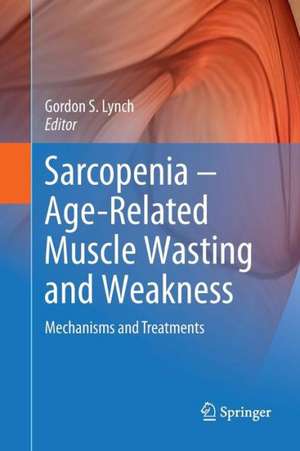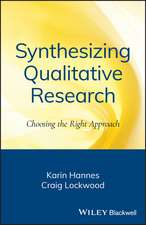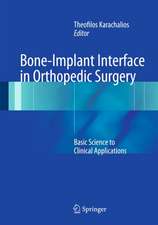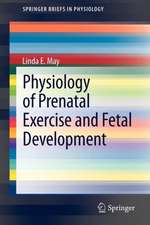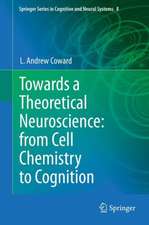Sarcopenia – Age-Related Muscle Wasting and Weakness: Mechanisms and Treatments
Editat de Gordon S. Lynchen Limba Engleză Paperback – 12 noi 2014
| Toate formatele și edițiile | Preț | Express |
|---|---|---|
| Paperback (1) | 1420.65 lei 6-8 săpt. | |
| SPRINGER NETHERLANDS – 12 noi 2014 | 1420.65 lei 6-8 săpt. | |
| Hardback (1) | 1425.76 lei 6-8 săpt. | |
| SPRINGER NETHERLANDS – dec 2010 | 1425.76 lei 6-8 săpt. |
Preț: 1420.65 lei
Preț vechi: 1495.42 lei
-5% Nou
Puncte Express: 2131
Preț estimativ în valută:
271.85€ • 296.48$ • 229.22£
271.85€ • 296.48$ • 229.22£
Carte tipărită la comandă
Livrare economică 24 aprilie-08 mai
Preluare comenzi: 021 569.72.76
Specificații
ISBN-13: 9789400790445
ISBN-10: 9400790449
Pagini: 496
Ilustrații: XIII, 479 p.
Dimensiuni: 155 x 235 x 26 mm
Greutate: 0.69 kg
Ediția:2011
Editura: SPRINGER NETHERLANDS
Colecția Springer
Locul publicării:Dordrecht, Netherlands
ISBN-10: 9400790449
Pagini: 496
Ilustrații: XIII, 479 p.
Dimensiuni: 155 x 235 x 26 mm
Greutate: 0.69 kg
Ediția:2011
Editura: SPRINGER NETHERLANDS
Colecția Springer
Locul publicării:Dordrecht, Netherlands
Public țintă
ResearchCuprins
1.Overview.- 2. Molecular mechanisms of muscle wasting in cancer and ageing: cachexia versus sarcopenia.- 3. Age-related remodeling of neuromuscular junctions.- 4.Motor unit remodeling during aging.- 5. Age-related decline in actomyosin structure and function.- 6. Excitation-contraction coupling in aged skeletal muscle.- 7. Mitochondrial function in aging skeletal muscle.- 8. Fibrosis and skeletal muscle aging.- 9. Nuclear apoptosis and sarcopenia.- 10. Age-related changes in the molecular regulation of skeletal muscle mass.- 11. Genetic variation and skeletal muscle traits: implications for sarcopenia.- 12. Proteomic profiling of aged skeletal muscle.- 13. Aging, exercise and muscle protein metabolism.- 14. Reactive oxygen species generation and skeletal muscle wasting – implications for sarcopenia.- 15. Exercise as a countermeasure for sarcopenia.- 16. Role of contraction-induced injury in age-related muscle wasting and weakness.- 17. Role of IGF-I signaling in age-related changes in skeletal muscle.- 18. Role of myostatin and TGF-beta signaling in skeletal muscle growth and development: implications for sarcopenia.- 19. β-Adrenergic signaling in sarcopenia and other muscle wasting disorders.
Textul de pe ultima copertă
Some of the most serious consequences of aging are its effects on skeletal muscle. ‘Sarcopenia’, the progressive age-related loss of muscle mass and associated muscle weakness, renders frail elders susceptible to serious injury from sudden falls and fractures and at risk for losing their functional independence. Not surprisingly, sarcopenia is a significant public health problem throughout the developed world. There is an urgent need to better understand the neuromuscular mechanisms underlying age-related muscle wasting and to develop therapeutic strategies that can attenuate, prevent, or ultimately reverse sarcopenia. Significant research and development in academic and research institutions and in pharmaceutical companies is being directed to sarcopenia and to related health issues in order to develop and evaluate novel therapeutics.This book provides the latest information on sarcopenia from leading international researchers studying the cellular and molecular mechanisms underlying age-related changes in skeletal muscle and identifies strategies to combat sarcopenia and related muscle wasting conditions and neuromuscular disorders. The book provides a vital resource for researchers and practitioners alike, with information relevant to gerontologists, geriatricians, sports medicine physicians, physiologists, neuroscientists, cell biologists, endocrinologists, physical therapists, allied health and musculoskeletal practitioners, strength and conditioning specialists, athletic trainers, and students of the medical and biomedical sciences.
Caracteristici
State-of-the-art information on aging and skeletal muscle Contributions from some of the world’s leading experts in skeletal muscle aging Identifies key neuromuscular mechanisms responsible for sarcopenia Identifies signalling pathways and targets for therapeutic intervention Information has relevance and broad application for researchers and practitioners involved with the study and treatment of aging and its effects on skeletal muscle Includes supplementary material: sn.pub/extras
